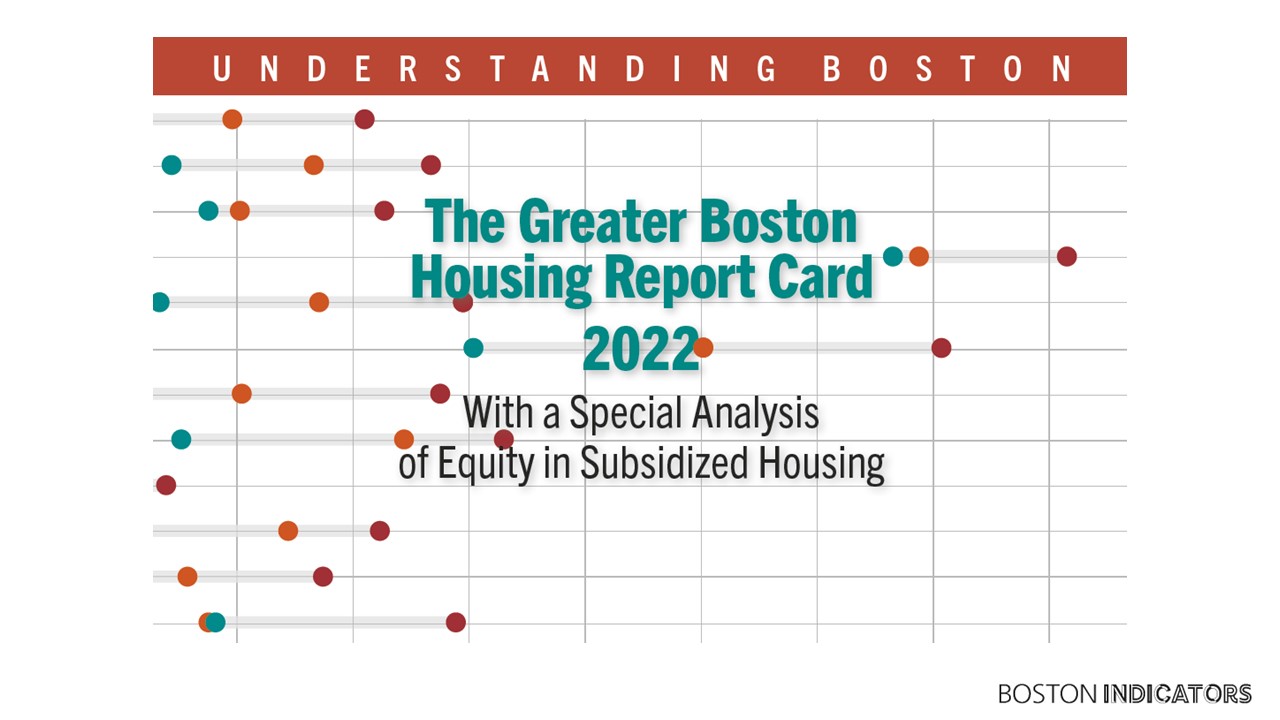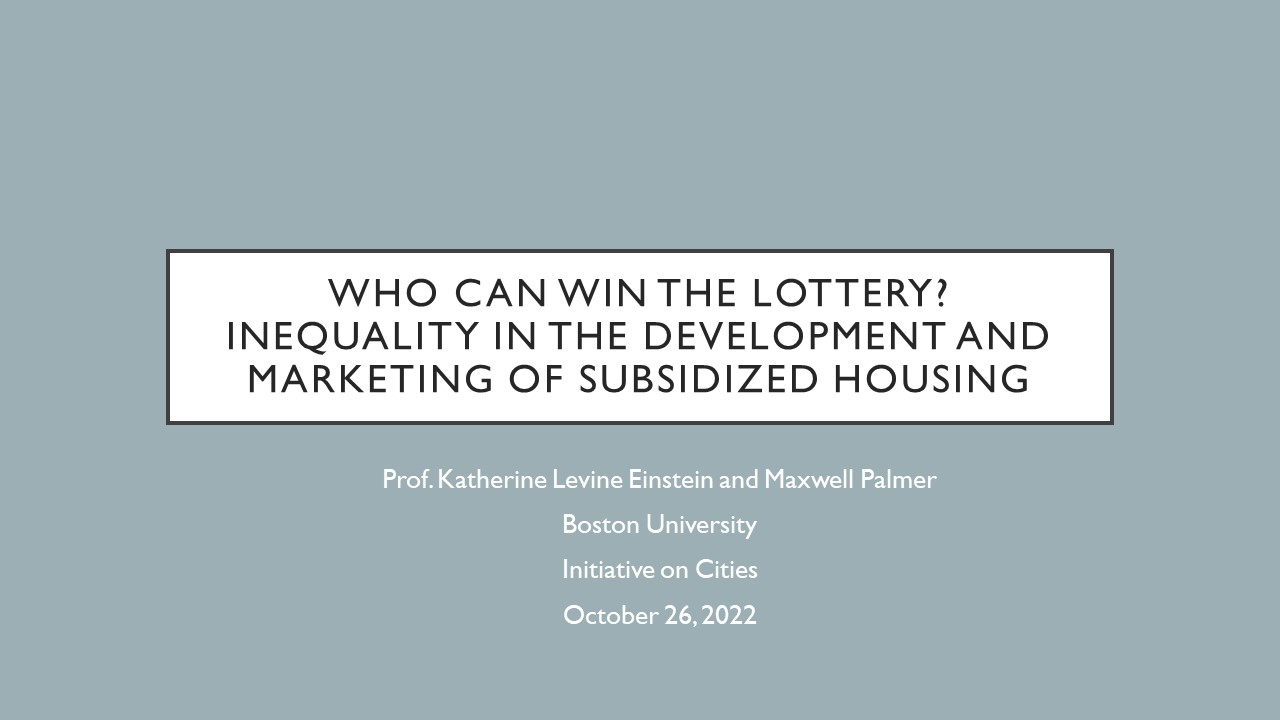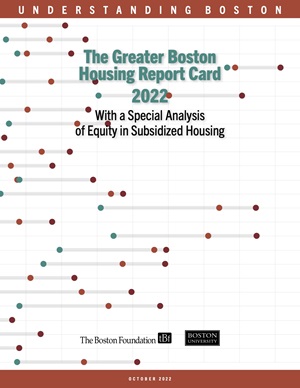2022 Greater Boston Housing Report Card
October 26, 2022
On October 26, 2022, the Boston Foundation held its first in-person forum in more than two and a half years. The occasion was the presentation and discussion of the 20th annual Greater Boston Housing Report Card, which this year explores barriers to accessing subsidized housing as well as current trends in housing supply and demand. It was a particularly meaningful inaugural on-site event for the Foundation, which has recently redefined its mission’s focus on equity and affirmed its commitment to pursuing it through engagement, leadership and research. As TBF President and CEO M. Lee Pelton said in his opening remarks,
“Nothing is more integral to equity than housing—perhaps the single most important issue in the city and surrounding areas. We especially value data and analysis to drive and track progress.”
Greater Boston continues to struggle with a lack of affordable housing, as tight inventory and rising costs continue to place significant burdens on homebuyers and renters. At the same time, flaws in the systems around subsidized housing mean that thousands of people who qualify for subsidies are getting lost in a fragmented system that is difficult to navigate.
Those are the major conclusions in the Greater Boston Housing Report Card 2022. The report card comprises three parts: a look at the current state of the market by Luc Schuster and the team at Boston Indicators; a special analysis of equity in subsided housing conducted by Katherine Levine Einstein and Maxwell Palmer of the Initiative on Cities at Boston University; and an accompanying series of interactive data and insights.
Two of the report’s authors, Luc Schuster, Executive Director of Boston Indicators, and Katherine Levine Einstein, Associate Professor & Director of Undergraduate Studies in the Department of Political Science at Boston University, shared key findings on core metrics and subsidized housing access, respectively.
“Even with subsidized housing, two earners making minimum wage would be extremely cost burdened, paying more than 50 percent of their income in rent,” - Luc Schuster.
“The state is failing to collect systematic information about subsidized housing. Without that, we can’t track what policies work and don’t,” - Katherine Levine Einstein.
The research presentation was followed by Panel Discussion and Q&A moderated by Soni Gupta, Associate Vice President, Neighborhoods and Housing, The Boston Foundation with panelists Lydia Edwards, State Senator, First Suffolk and Middlesex, Commonwealth of Massachusetts; Jennifer Gilbert, Founder and Executive Director, Housing Navigator; Jennifer Raitt, Executive Director, Northern Middlesex Council of Governments; and Leslie Reid, Chief Executive Officer, Madison Park Community Development Corporation. These experts, each with a different perspective on the interwoven housing access inequities, shared their experiences and insights, and found common emphasis on several points.
“We’re where we are because of purposeful development, redlining, and so on. We need to say that municipalities have to plan for racial integration. There’s a lack of prioritization of this among towns and developers,” - Lydia Edwards.
Another point hammered home by all was that a one-size-fits-all solution will not work. What we need to achieve housing equity in a White suburban community is not what we need in the city. Reid spoke powerfully when she said,
“I want to honor fair housing as the bedrock of the civil rights movement. It’s our responsibility to adjust policies to make it work. Complexity plays out on a block-by-block basis. Following rules can have the perverse outcome of skewing from intentionality. There’s a really big room in this house and it’s the room for improvement.”
The 2022 Greater Boston Housing Report Card is available for download at tbf.org/GBHRC2022. The website also features interactive charts and an appendix that includes city- and town-level data from dozens of Greater Boston communities.



